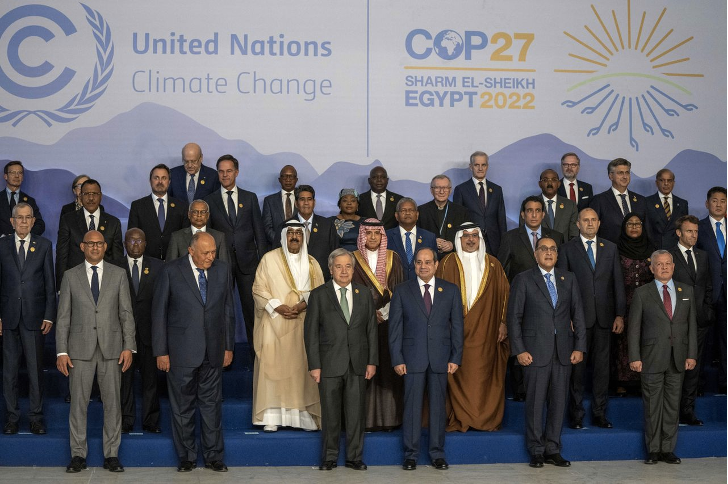By Nawel Erraji / GICJ

“On a highway to climate hell with our foot on the accelerator” stated the U.N. secretary general, António Guterres to set the tone for this year’s 2022 United Nations Climate Change Conference (COP27) in Sharm El-Sheikh, Egypt. The conference being held from November 6 to 18, resonated with late french president Jacques Chirac’s call in 2000 at the Earth Summit : "Our house is burning down, and we're looking in the other direction”.
Many expressed concern that Russia’s invasion of Ukraine will lead to rampant inflation and may distract the international focus. Europe’s energy crisis is casting a long shadow over the conference; however, due to the invasion. This is evident in countries renege on commitments on the topic of using coal, as an insurance policy.
In the case of gas, climate activists have pitched themselves against African governments that believe they should be allowed to utilise gas to develop their economies and provide power to 600 million Africans who still lack access to electricity.
The Paris Agreement established that the disparity between the richest and poorest nations cannot provide the same outcomes. To further advance this transition, underdeveloping countries need financial assistance to reach a zero carbon system.
Furthermore, Africa is only responsible for 4% greenhouse gas emissions, making it the least responsible one. In contrast, G20, the group of the richest countries, account for 75% of these emissions. In addition, the “V20”, a coalition of the 55 most vulnerable countries produces only 5% emissions while their GDP falls by 20% because of difficulty financing their infrastructure.
Pakistan has had constant climate catastrophes in recent years - floods, heatwaves and forest fires - and is struggling to find the funding it needs to recover from unprecedented flooding that started in June, inundating a third of the country.
Since climate talks began decades ago, an agreement to discuss compensating poor nations for mounting damage linked to global warming was placed on the agenda for the first time.
This was controversial since last years COP26 in Glasgow, high-income nations blocked a proposal for a loss and damage financing body, instead supporting a three-year dialogue for funding discussions. So far, only two small countries have offered funding for loss and damages. Denmark, committed 100 million Danish crowns, and Scotland pledged £2 million ($2.28 million).
Lastly, the consequences of global warming are also affecting Europe. By the end of August 2022, some 700,000 hectares of forest had burned this year in the EU, more than in 2017, the previous record. Spain is the most affected, ahead of Romania. The Commission will publish guidelines to optimize forest management this autumn.
Will the negotiations lead to a formal agreement, knowing that this is international cooperation depending on the good will of the countries, therefore the absence of China?
COP27, Climate Change Conference, Climate Change, United Nations, UN, Environment, Human Rights, Geneva, Justice, Geneva4Justice, GICJ, Geneva International Centre for Justice









